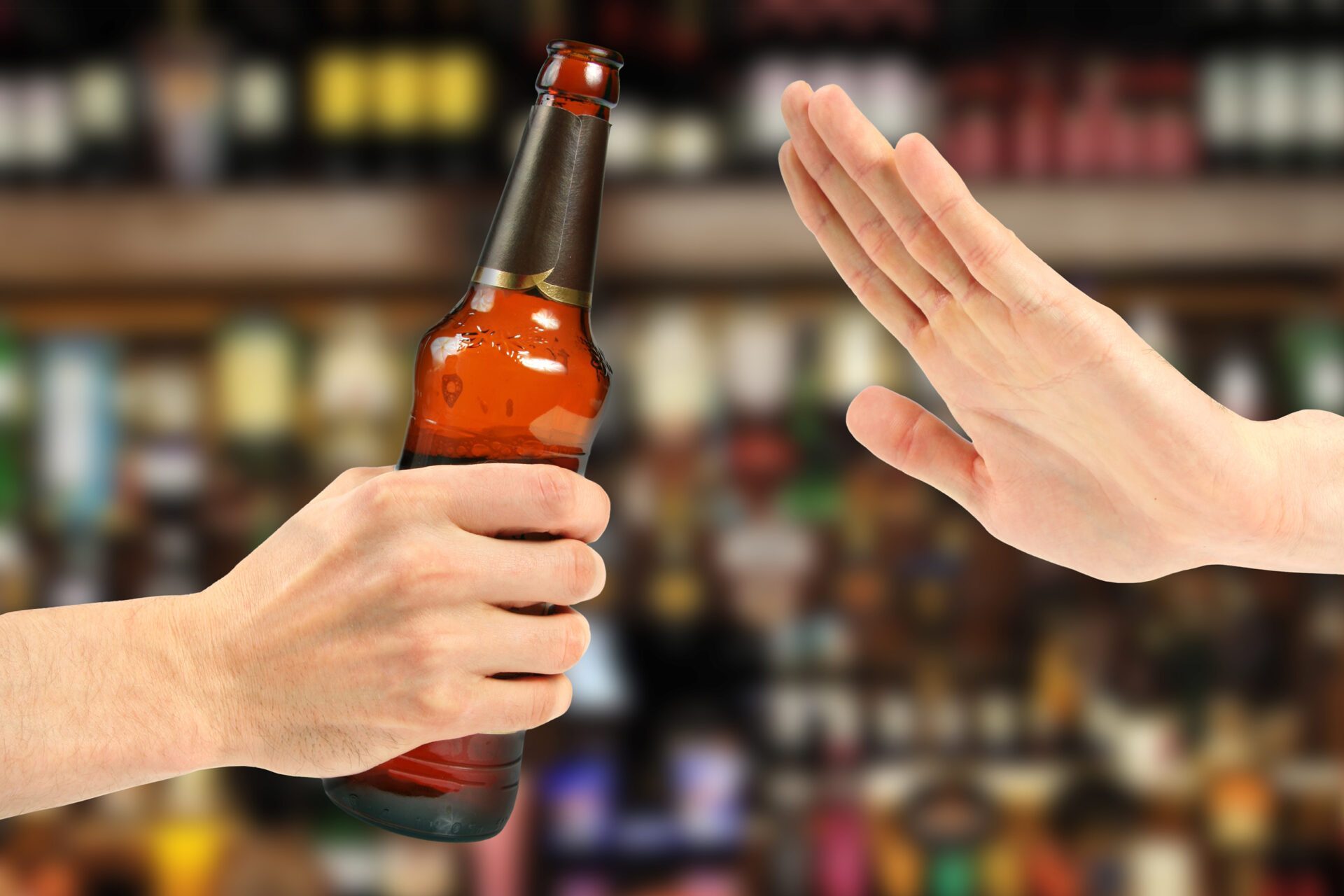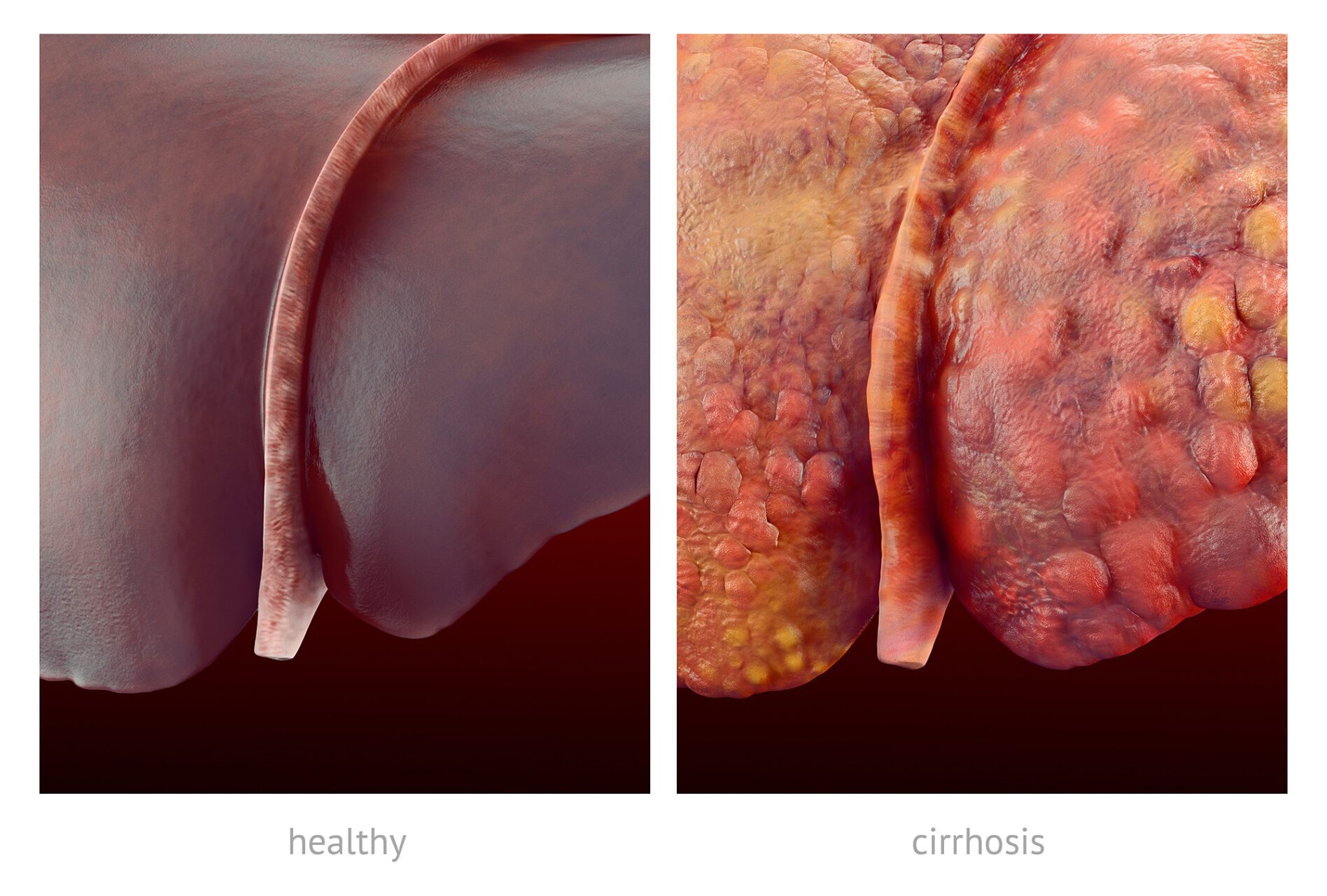Liver disease from alcoholism
Liver disease is a very general phrase that incorporates many different kinds of damage to the liver, and recognising liver disease symptoms early can be crucial.
Not only can excess alcohol consumption directly cause deaths (such as through violence or accidents), but you can be at risk of developing major long-term health issues. This is why it’s important that if you drink alcohol, you do it in moderation. Otherwise, drinking excessively and binge drinking can really take its toll on both your physical and mental health and can be life-threatening.
In 2016, there were over 5,500 alcohol-specific deaths. This is a slight increase from 2015, which means the number is even higher today in 2020.
In this article, we’ll discuss everything you need to know about your liver and alcohol.
What Does Your Liver Do?
Before we discuss what alcohol does to your liver, let’s first explore what your liver does. The liver is a large organ that’s located on the lower-right side of your abdomen. In fact, it’s so large that it weighs about 3 pounds!
This organ works together with other ones to ensure you digest your food properly. That way, you can get all the nutrients you need from it.
In general, your liver keeps out toxins from your body. This is because it filters all the blood that comes from your gastrointestinal (GI) tract and then allows the “clean” blood to go on to the rest of your body. It also helps with blood clotting and other important things your body needs to do.
When you take drugs and/or alcohol, these are technically “toxins” that need to be filtered out. The same goes for any prescribed medications you take.
What Is Alcohol?
You probably already know what alcohol is: it’s a drink that can make you intoxicated.
But do you truly know what it is and what its effect is on your body? Probably not.
You may not know this, but alcohol is actually considered a drug. The intoxication you feel is actually your body becoming slightly poisoned from the chemicals in alcohol. This is why if you drink too much at once, you can end up with alcohol poisoning.
Your Liver and Alcohol
You’re probably familiar with the effects of alcohol.
Initially, you may feel relaxed and slightly euphoric. Then, as you drink more, you might experience lowered inhibitions and a lack of coordination, including with your speech (slurring). You may also drink so much you end up feeling very depressed, nauseous and throwing up.
But what happens to your liver?
The alcohol effects on your liver can be quite serious. This is because when you drink alcohol, it prioritises filtering out this toxin over all its other functions. If you often drink and a lot, then this can put a significant strain on your liver.
As a result, it is common for people to develop some negative effects on their health.
What Can Happen If You Drink Too Much?
Of course, if you drink too much, you’ll feel the after-effects in the form of a hangover. You’ll feel dehydrated and horrible; a hangover usually comes with a headache, nausea, vomiting, diarrhoea, fatigue, and more nasty symptoms.
If this only happens once in a while, then your liver should be in good enough condition to bounce back and return to normal soon after. However, if you’re a heavy drinker or binge drinker, you are at risk of causing damage to this precious organ.
So what are the first signs of liver damage from alcohol?
You’ll feel like you’re unwell overall. In addition, you may have stomach pains, nausea, vomiting, and diarrhoea.
If this continues, then you may develop one or more of the following conditions.
Alcoholic Fatty Liver Disease
You can develop what’s called fatty liver disease, or steatosis, caused by too much fat in your liver. This can produce liver inflammation, create scarring and lead to liver failure in some severe cases.
In the beginning stage of the liver disease, your liver cells have a lot of fat inside them. This happens because the liver is struggling to keep up with filtering out toxins from the body.
What’s frightening about this disease is you don’t really have any symptoms. Some people may experience discomfort or pain in the bottom right of their abdomen, as this is where the liver is.
Otherwise, the only sign is an enlarged liver. There may be some fatigue, as well.
If you think you have fatty liver disease, the doctor will perform an ultrasound or computed tomography (CT) scan. They may also order blood tests to check the levels of your liver enzymes.
While this can be a scary disease, the good news is you can reverse it by quitting drinking and abstaining for a period of time. This means the damage isn’t permanent just yet.

Alcoholic Hepatitis
Another risk factor is if you continue drinking and don’t take a break, you can develop alcoholic hepatitis. Your liver will continue swelling, and eventually, it’ll develop some scar tissue.
This scar tissue will then compromise the blood flow coming to your liver. As a result, your liver won’t be able to do its job as efficiently.
Symptoms of alcoholic hepatitis include:
- Extreme fatigue
- Jaundice
- Vomiting
- Low fever
- Weight loss
- Blood in vomit
- Blood in stool
- Swelling in the lower legs
- Some tenderness in the stomach
These signs are more noticeable than with fatty liver disease. At this point, the damage isn’t permanent yet, either.
You should make an appointment with your GP if you have any of these symptoms.
They’ll perform a physical exam, as well as an ultrasound and CT scan. They may also order tests for complete blood count (CBC), blood clotting, and liver function. In some cases, they’ll also need a liver biopsy to confirm that you have this disease.
If you have this disease, you need to cease all drinking immediately, especially if you have a severe case. If it’s serious enough, it can be fatal.
Alcoholic Cirrhosis

Alcoholic cirrhosis occurs after you’ve abused alcohol for a long period of time, and you may have permanent liver disease from alcohol. However, you can definitely get relief from cirrhosis symptoms if you quit drinking.
With alcoholic cirrhosis, your liver has so much scar tissue that it can no longer function normally. In fact, they’ve replaced most of your healthy liver cells.
Some people even wonder if bad hangovers are a sign of liver damage. Inevitably, overuse of alcohol will make you feel poorly. However, there are so many factors that contribute to how bad a hangover can get. Therefore, it can’t be concluded that a bad hangover is a sign of liver problems. Some individuals digest food and drink at a slower rate, and because of this, they are exposed to the by-products of alcohol for a longer period resulting in a bad hangover.
Some people will digest things more slowly and probably will be more sensitive to alcohol,” says Dr Mehta. “As a result, you’re ending up with the by-products of alcohol that give you that hangover in your system for longer, and a more sustained exposure
Symptoms of alcoholic cirrhosis include:
- Jaundice (yellowing of the skin)
- Mental changes, including confusion
- Nausea
- Vomiting
- Fever
- Pain
- Portal hypertension
- Ascites
- Bleeding in your oesophagus
- Liver cancer
Alcoholic cirrhosis usually takes years of drinking too much alcohol to occur. But if you reduce your alcohol intake early enough, you can basically resume your normal life.
To get a proper diagnosis, your GP will run some blood tests. Low levels of the following will indicate cirrhosis:
- Iron
- Sodium
- Magnesium
- Potassium
High levels of the following will also indicate this disease:
- Blood ammonia
- Blood sugar
- Leukocytes
- Aspartate aminotransferase (AST)
Make sure you see your doctor immediately if you suspect you have cirrhosis.
How to Get Treatment
You may not have liver disease yet. But that doesn’t mean you shouldn’t seek help for alcoholism. In fact, the sooner you do so, the better, as this may save you from irreversible damage.
Here are the steps of treatment for alcoholism.
Detox
If you have been diagnosed with alcoholic liver disease, we can help you find a rehab centre that can recommend treatments which may slow the disease’s progress and reduce your symptoms. The first step in treatment is to help the person stop drinking with alcohol detox. This is where you rid your body of all alcohol. If you drink heavily, never try to go cold turkey on your own, as that can result in serious health problems.
Instead, have a professional guide you through it. They’ll prescribe you approved alcohol detox medications so the process is as safe and comfortable as possible.
Rehabilitation
Once you’ve fully detoxed, you can choose between inpatient and outpatient rehabilitation. The main difference is that inpatient costs more, as you live at the facility for the duration of your treatment. However, inpatient tends to have better results than outpatient, so you should go that route if possible.
In either case, you’ll go through the same things. For example, you’ll work with a counsellor closely to not only identify your triggers but also to learn healthy methods of coping. This can help immensely in avoiding relapse.
You’ll also attend group therapy and alternative therapies, such as art and music therapy, as well as meditation and yoga.
Aftercare
Aftercare is a programme you’d attend as you transition back to normal life. The activities are pretty much the same as with rehab, except you’re back in your everyday schedule again.
You’ll have the support of both professionals and others in recovery. That way, if you’re struggling (especially since many social situations involve alcohol), they’ll be there to keep you strong.
Get Help Today If You Have Problems With Alcohol
Now that you know what can happen with your liver and alcohol, you might’ve realised that you have a dependence on the substance.
The good news is, the damage can be reversed in most cases. So long as you’re dedicated to recovery and sobriety, you can definitely turn your life around and lead a happier and healthier life.
So seek help today. Not only can it be better for you, but it’ll also help improve your relationships with your loved ones.
Would you like more information on detox and rehabilitation for alcohol? Then get in touch with us now. We’ll be more than happy to give you free advice.

John has dedicated his life to finding treatment for those with addictions and supporting their families.
A business manager for 20 years in the construction industry John’s own experience of addiction led him to found his own rehab centre group in Scotland.
John qualified as a counsellor for people with substance misuse during his time working as a therapist and manager for the foundation. He also trained as an interventionist and appeared on ITV as a consultant helping families impacted by addiction.
He has helped thousands of people in recovery and his knowledge of the rehabilitations process and the addiction experience is unparalleled.


